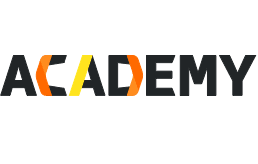By Jeremy Pedersen
Welcome back for the 23rd installment in our weekly blog series! This week we will take a look back at questions I have been asked during my time at Alibaba Cloud.
Because we have separate business entities for operations inside Mainland China and outside Mainland China.
The two official Alibaba Cloud sites are:
I've covered the differences in more detail in the past, so I'll just summarize: aliyun.com is for customers in Mainland China, and alibabacloud.com is for customers everywhere else.
What this means - in practice - is that if you want to use aliyun.com, you need to have a Chinese phone number and bank account (or Alipay account). On the other hand, if you want to use alibabacloud.com, you will need a non-Mainland Chinese phone number and payment method!
The thing that trips up some users is the fact that users in Hong Kong and Macau should use alibabacloud.com! aliyun.com is specifically for Mainland China users.
There are also some differences in what products are offered (aliyun.com offers more), and in the size of the Cloud Marketplace (the aliyun.com marketplace is bigger), but regardless of which site you're on, you can use all 24 Alibaba Cloud regions and can use all the basic products (ECS, SLB, RDS, and OSS).
Our database team is constantly building new stuff and adding new features. As a consequence, there are several different ways to run databases on Alibaba Cloud, each with its own advantages and drawbacks. Here are a few of the more popular options:
Options #1 is best if you need top-to-bottom control of your database and its runtime environment. If you are running a database engine we don't support in one of our managed database products, or you need special operating system tweaks or extensions to get your database running, go with #1.
Option #2 is a compromise between a fully-managed database service and a self-built database. With option #2 (MyBase), we set up a dedicated database cluster running MySQL or Microsoft SQL Server, then we hand you the keys: from that point on, you can SSH into the machines that make up the cluster and make operating system level changes, if you need to.
What if I need something that runs locally? If you want something that will run in your own datacenter, consider PolarDB Stack.
Option #3 - RDS - is best if you want something simple, stable, and affordable, and do not need extreme scaling or storage capacity. RDS is our default recommendation for small and medium-sized businesses.
Option #4 - PolarDB - is a highly scalable database system that uses a "shared everything" architecture. Simply put, this means that PolarDB scales far more easily than RDS does, and can scale up and down on demand in response to changes in load. PolarDB databases can be up to 100 TB in size and handle loads up to 1,000,000 QPS. If you think your database load is going to increase significantly in the future, PolarDB is the best choice.
I have written a whole blog article on the topic of choosing the right database service, so check that out before you decide!
I've written on that topic already as well! Check out this article on how to choose ECS instance types.
If you set up an ECS instance in the Beijing region, then any data you store on that ECS instance is going to be located in Beijing.
The same goes for all other "Regional" Alibaba Cloud services including OSS, RDS, and so on. In short, You control where your data is housed, by deciding which region you want to deploy services in.
This depends on the product we're talking about. Many Alibaba Cloud services have the ability to run across more than one Alibaba Cloud Zone at a time. Each Alibaba Cloud Region contains multiple AZs (Availability Zones), so if you configure a service to run across multiple AZs, it can survive the failure of a one (or sometimes even two) Zones.
Here are are few of the more common Alibaba Cloud services that have built-in multi-Zone HA:
Setting up an HA architecture is complex and figuring out how to ensure HA will involve understanding the specifics of the application you are deploying. If you're looking for an example, here's a blog post from one of our intrepid tech bloggers, explaining how to set up HA WordPress
For some services - like DNS or RAM (Resource Access Management) - things are actually simpler. These services are "Global", meaning they work across all regions and are not dependent on a particular Region or Zone to function. With these services, you don't need to do anything special to make sure they will keep functioning of a Zone or Region goes down. They "just work".
Great! Reach out to me at jierui.pjr@alibabacloud.com and I'll do my best to answer in a future Friday Q&A blog.
You can also follow the Alibaba Cloud Academy LinkedIn Page. We'll re-post these blogs there each Friday.
Friday Blog - Week 22 - SLB, CLB, ALB, Oh my! Load Balancing on Alibaba Cloud
Friday Blog - Week 24 - Make Your Own Personal Cloud With ownCloud
JDP - April 30, 2021
JDP - October 1, 2021
JDP - June 4, 2021
JDP - July 9, 2021
JDP - May 7, 2021
JDP - April 9, 2021
 Alibaba Cloud Academy
Alibaba Cloud Academy
Alibaba Cloud provides beginners and programmers with online course about cloud computing and big data certification including machine learning, Devops, big data analysis and networking.
Learn More IDaaS
IDaaS
Make identity management a painless experience and eliminate Identity Silos
Learn More Backup and Archive Solution
Backup and Archive Solution
Alibaba Cloud provides products and services to help you properly plan and execute data backup, massive data archiving, and storage-level disaster recovery.
Learn More Elastic Desktop Service
Elastic Desktop Service
A convenient and secure cloud-based Desktop-as-a-Service (DaaS) solution
Learn MoreMore Posts by JDP
Osama Hafez August 27, 2021 at 9:14 am
Thanks JDP for very useful Questions and answers 👍